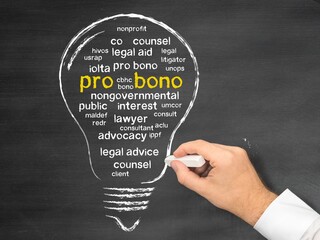
“Daniel Greenberg became interested in amending ABA Model Rule 1.8(e) when he realized he’d been in violation of it his entire career.
“It literally did not occur to me that it could be unethical to, when you were in court waiting for a case to be heard, take an indigent client to lunch with her kids or give her carfare to get home or, in some cases, help her with food and some necessities,” says Greenberg, the special counsel for pro bono initiatives at Schulte Roth & Zabel in New York City.
“And when I found out that one wasn’t supposed to do it, it was almost like I laughed out loud. It felt so bizarre to me, that of all things, we couldn’t do this as an ethical matter.”
Greenberg, who was at the time on the ABA Standing Committee on Legal Aid and Indigent Defense, worked with other members for several years to research and recommend changes to the rule, which bars financial support for litigation clients. After SCLAID and the Standing Committee on Ethics and Professional Responsibility approved their proposal, it was submitted to the House of Delegates at the ABA Annual Meeting in August.
The association’s official policymaking body adopted Resolution 107, which amends Model Rule 1.8(e) by adding a narrow exception that will improve access to justice for the most vulnerable populations. Under this exception, lawyers who represent indigent clients pro bono through a nonprofit legal services organization or law school clinical program are permitted to provide them with modest gifts for food, rent, transportation, medicine and other basic living expenses.
The amendment also states lawyers may not promise gifts to clients in exchange for their retention or a continued relationship after retention; seek or accept reimbursement for gifts from clients or anyone affiliated with them; or advertise the availability of gifts to potential clients.“
This article was originally posted in the Aba Journal. To read the rest of the article click here


